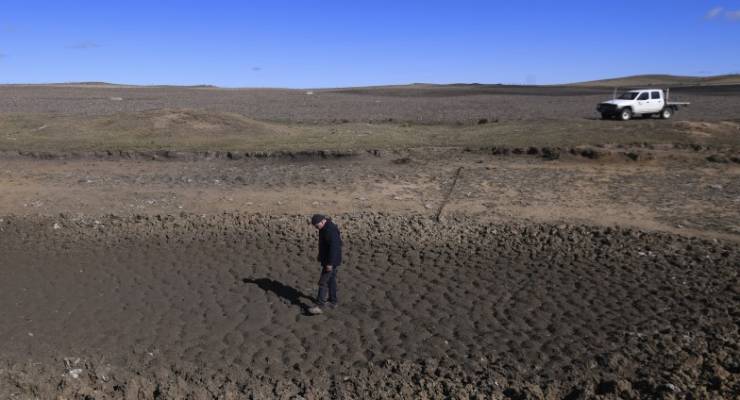
Want meaningful action on climate change? Vote in a new government, Crikey readers advise. Even with drastic evidence mounting of irrevocable climate damage, it’s unlikely we’ll ever see genuine movement from the Coalition. Elsewhere, readers responded to Bernard Keane on how neoliberalism leads to nationalism.
On the need for climate action
Patrick Brosnan writes: Not going to happen. Why are we wasting column inches on this? The only thing that will cause us to make some substantive progress towards decarbonising the economy is a change of government and we stupidly put that off for three years.
Ken Dally writes: My family until recently had been in horticulture for 140 years in the Orange district of NSW. Changes since my great grandfather’s time are significant. However most noticeable and worrying is the rapid changes since the 1960s. Crop harvesting moved forward four to six weeks, increasing hailstorms and previously unheard of sun damage to fruit. Higher minimum temperatures mean more unreliable fruit set as cold temperatures are needed for fruit budding. As a rural fire brigade deputy captain with 40 years experience I’ve seen fires become more intense, the fire season extending by at both ends by months. There’s more damage to crops from birds and fruit bats. A combination of habitat destruction and migration to cooler areas. We used to get two to three heavy snowfalls a year. Now unusual to get snow full stop. Growing a more delicate crops like fruit and wine grapes in the area at higher altitude we are more sensitive to change than grains and livestock. The canaries in the coal mine.
Catherine Rossiter writes: The most effective thing the government could do would be to introduce a low (say $2 a tonne) price on all carbon emissions. The price would send a clear signal to the marketplace without being onerous, and it could be gradually raised over the coming years. This would not add much to people’s power bills, but it would be a serious and effective mechanism.
On the danger of neoliberalism
Gregory Bailey writes: The majority of the population in the relevant countries will not know what neoliberalism means, as understanding of it requires seeing economic/cultural/political systems as systemic wholes, not as individual components usually regarded as being unrelated. They believe — even given a dose of stoic scepticism — that “jobs and growth” will always be forthcoming and that standards of living must rise, because this is what they have been told. But when this does not happen — as a result of a collapse in manufacturing industry and a loss of jobs through digital technology, combined with a falling away of government services because of chronic tax evasion and privatisation — there is a visceral feeling that all is not right. And this feeling is only exacerbated when Anglos, in particular, witness large scale immigration which they conflate with rising house prices and loss of jobs.
Send your comments, corrections, clarifications and cock-ups to boss@crikey.com.au. We reserve the right to edit comments for length and clarity. Please include your full name if you would like to be considered for publication.







Catherine Rossiter proposes to introduce a low price on all carbon emissions. Excellent logic, but a tweak of the wording would make it more powerful: we should put a low price on all carbon extractions. If a carbon tax is paid for at the time any fossil carbon is extracted from the ground, the tax would have already been paid before manufacturers, generators etc can dodge paying the tax. On the other hand, if the word “emissions” were used, the government of the day would be swamped with a noisy barrage of lawyers, spin doctors and accountants all claiming exemptions for their respective employers.
Scott Morrison has announced a $500 million aid to our Pacific neighbours to help defray the effects of climate warming on their nations. How come Australia, also heavily at risk from the same source, gets no mention??
What’s the matter Scott, Andrew Bolt has got too many friends in high places??